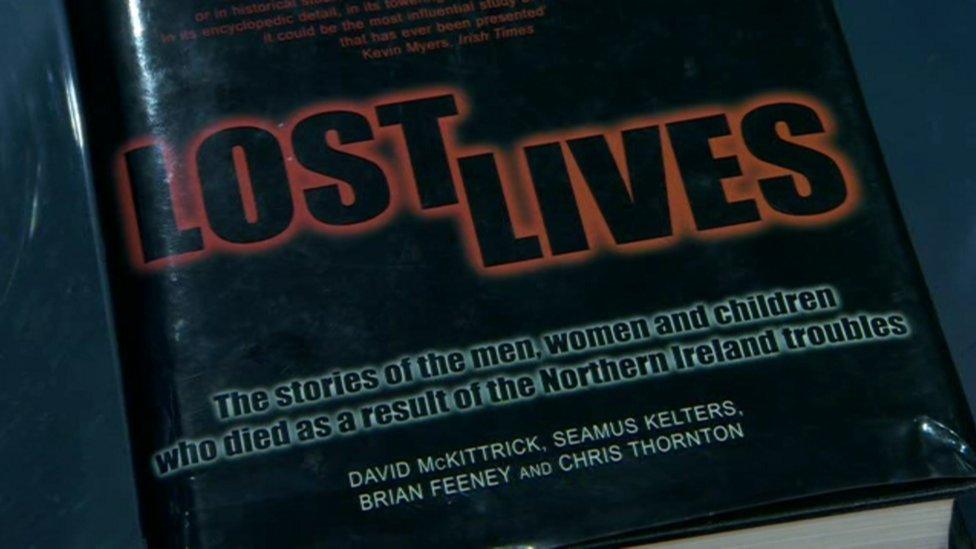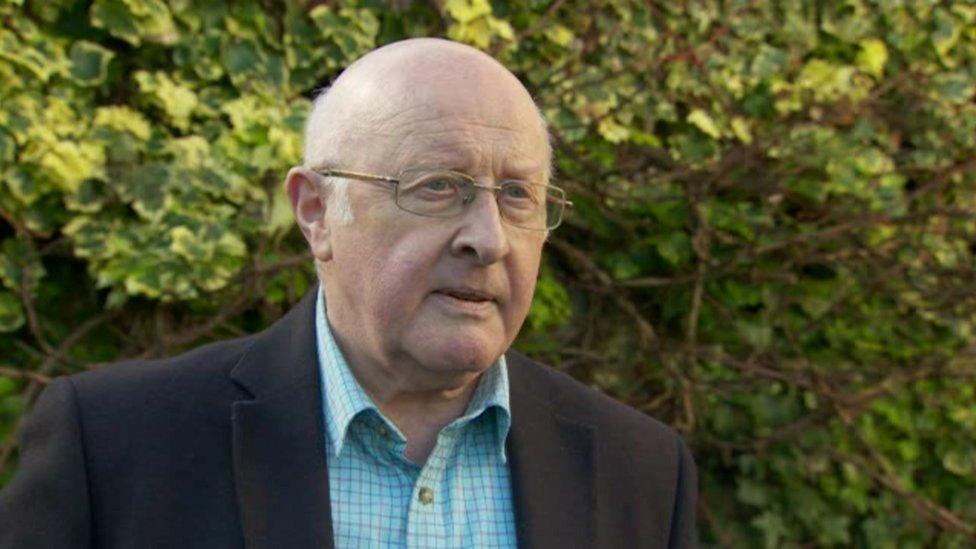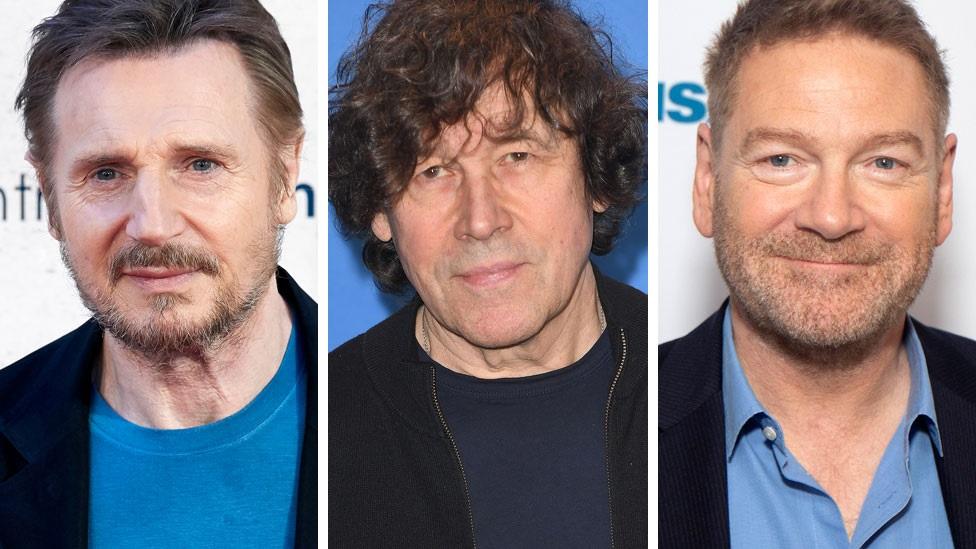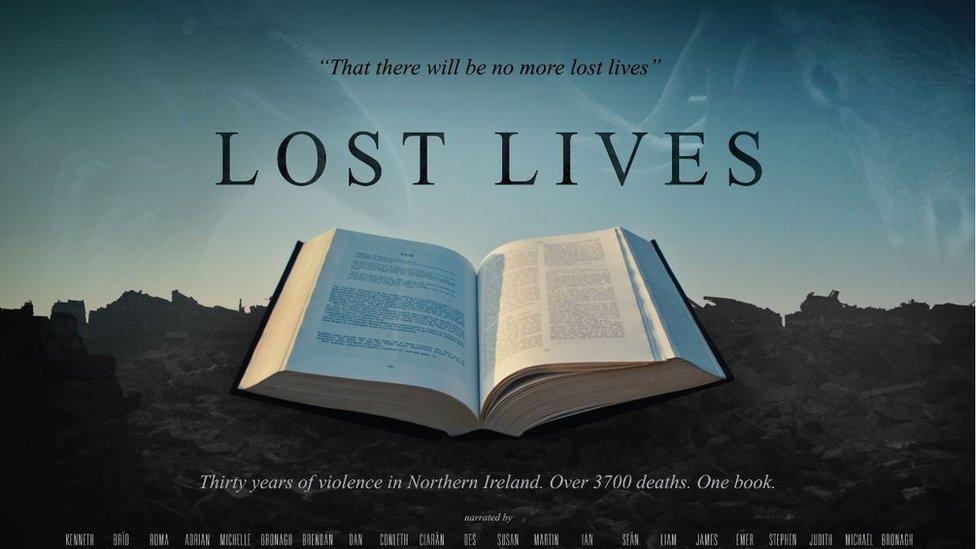Lost Lives co-author opposes government rights buy
- Published

Lost Lives was first published in 1999 after several years of research by its co-authors
A co-author of Lost Lives, a book which chronicled Troubles deaths, has said he would oppose any government plans to buy its publication rights.
The Irish Minister of State for Foreign Affairs said that the government would explore ways to ensure the book "remains available for the future".
Colm Brophy said this could involve a "collaborative effort" with the Northern Ireland Executive.
But Lost Lives co-author Brian Feeney fears it could be "contentious".
Mr Feeney told BBC News NI that he would be "very concerned" if the NI Executive or Irish government purchased the rights to the book.
"At the moment, and everyone says this, the book is not contentious, but if politicians got their hands on it it would be contentious," he said.
"I would be certain that there would be edits to the book."

Brian Feeney said he was concerned that there could be edits to the book
Irish Times columnist Fintan O'Toole said he suggested the Irish government "acquire the rights to it and happily this was taken up".
"In fact, it was discussed in Dáil Éireann (Irish parliament) during the week and the government's response to this was very positive," he said.
Ian Marshall, a former member of the Seanad (Irish senate), said he has written to Northern Ireland's first and deputy first ministers to ask them to get involved.
"As a testament to all those victims and all the families that were affected, it would be a really super gesture, a really powerful gesture for both Belfast and Dublin to maybe open up a conversation about the potential to get the rights to the Lost Lives book," he told BBC News NI.
The book was first published in 1999 after several years of research by its co-authors David McKittrick, Seamus Kelters, Brian Feeney and Chris Thornton. At a later stage, David McVea joined the project.
It records the stories of more than 3,700 deaths during the conflict.
Copies of the book have been put up for sale for three-figure sums in recent years.
In 2019, a film was produced based on the work, narrated by several prominent voices including Liam Neeson, Ciarán Hinds, Kenneth Branagh and Adrian Dunbar.
Related topics
- Published10 October 2019

- Published15 February 2020
